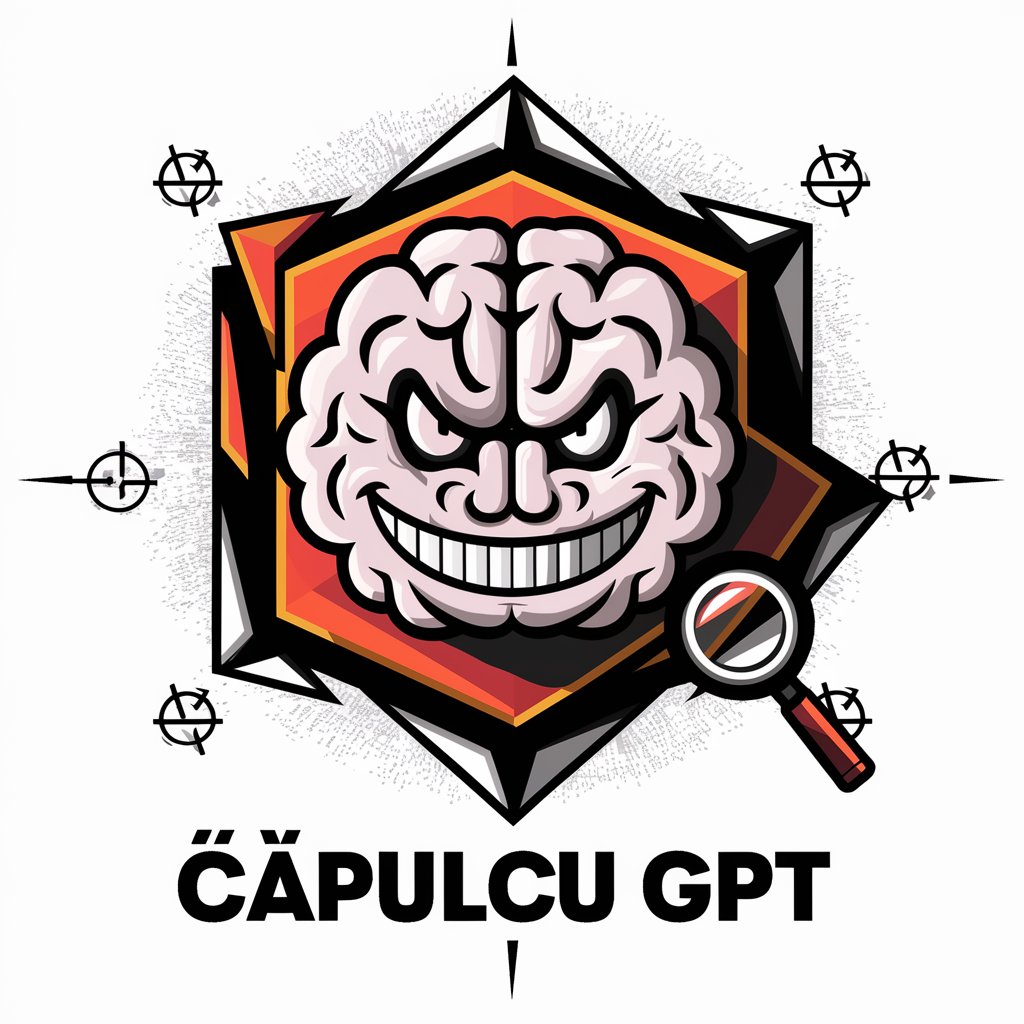7 GPTs for Philosophy Powered by AI for Free of 2025
AI GPTs for Philosophy are advanced tools that utilize Generative Pre-trained Transformers technology to assist, analyze, and generate content related to philosophical topics. They are specifically designed to handle a wide range of philosophical inquiries, providing insights and solutions tailored to the nuances of philosophical discourse. These tools leverage natural language processing to interpret, respond to, and engage with philosophical texts, arguments, and ideas, making them highly relevant for educators, students, researchers, and enthusiasts interested in exploring philosophical concepts through an AI lens.
Top 7 GPTs for Philosophy are: 国学易学大师课,Stoic,Space Monkey,Lucent's Tweet Explainer,Çapulcu GPT,Yoga Vidya,Naval Ravikant Bot
国学易学大师课
Unlock Chinese wisdom with AI.

Stoic
AI-powered Stoic guide to philosophy and growth

Space Monkey
AI-powered exploration of imagination and creativity

Lucent's Tweet Explainer
AI-powered tweet analysis for clarity.
Çapulcu GPT
AI-powered critical thinking.

Yoga Vidya
Unlock the power of yoga with AI.

Naval Ravikant Bot
AI-powered insights from Naval Ravikant

Key Characteristics and Abilities
AI GPTs for Philosophy boast unique features such as advanced natural language understanding, which allows them to comprehend and engage with complex philosophical texts and arguments. They can simulate philosophical debates, generate reflective essays, and provide explanations of philosophical concepts in accessible language. Special features include adaptability to various philosophical disciplines, support for multiple languages, technical assistance for research, and capabilities for web searching and data analysis to enrich philosophical studies.
Who Benefits from Philosophical AI Tools
The primary users of AI GPTs for Philosophy include philosophy students, educators, researchers, and enthusiasts. These tools are accessible to novices seeking to learn more about philosophy, as well as developers and professionals looking for advanced analytical tools. They offer user-friendly interfaces for those without coding skills, alongside customization options for users with programming expertise, facilitating a wide range of philosophical explorations.
Try Our other AI GPTs tools for Free
Anatomy
Discover how AI GPTs for Anatomy are revolutionizing the field of medical education and research, offering tailored, interactive learning experiences and up-to-date anatomical insights.
Community
Discover how AI GPTs for Community transform engagement and support, offering tailored, scalable solutions for vibrant, inclusive community spaces.
Daily Life
Discover how AI GPTs for Daily Life can transform your everyday routines with tailored assistance, enhancing productivity, learning, and leisure through advanced AI.
Communication Methods
Discover how AI GPTs for Communication Methods revolutionize interactions, offering personalized, efficient, and multilingual solutions for diverse communication needs.
Hospital Logistics
Optimize your hospital's logistics and improve patient care with AI GPTs. Discover the future of healthcare operations and management with advanced AI tools.
Math Visualization
Discover how AI GPTs for Math Visualization transform complex data into clear, interactive visuals, making math more accessible and engaging for all.
Expanding Horizons with Philosophical AI
AI GPTs for Philosophy offer a novel approach to engaging with philosophical content, providing platforms that are not only educational but also deeply interactive. They democratize access to philosophical knowledge, encourage exploration, and could potentially revolutionize how philosophical education and research are conducted by integrating seamlessly with user-friendly interfaces and existing digital workflows.
Frequently Asked Questions
What exactly are AI GPTs for Philosophy?
AI GPTs for Philosophy are artificial intelligence tools designed to assist with philosophical inquiry, leveraging GPT technology to analyze, discuss, and generate content related to philosophy.
How can these tools enhance philosophical studies?
They can simulate debates, generate essays, explain concepts in simple terms, and provide analytical support for complex philosophical research.
Who can use these AI GPT tools?
Anyone interested in philosophy, from beginners to professionals, can benefit from these tools. They are designed to be accessible to all users, regardless of their programming skills.
Can these tools understand and generate content in multiple languages?
Yes, many AI GPTs for Philosophy support multiple languages, enhancing their accessibility and usability worldwide.
Are there customization options for more experienced users?
Yes, these tools offer advanced customization options for users with programming knowledge, allowing them to tailor the AI's responses and capabilities to specific needs.
Can AI GPTs for Philosophy integrate with existing educational or research systems?
Yes, with the appropriate technical setup, these tools can be integrated into existing educational platforms or research projects to enhance learning and analytical capabilities.
How do these tools stay updated with new philosophical discussions and texts?
AI GPTs for Philosophy are periodically updated with new data and improvements in AI technology to stay current with ongoing philosophical discourse and scholarship.
What sets AI GPTs for Philosophy apart from other AI tools?
Their specialized focus on philosophical content, coupled with advanced natural language processing capabilities, makes them uniquely suited to tackling the complexities of philosophical texts and arguments.